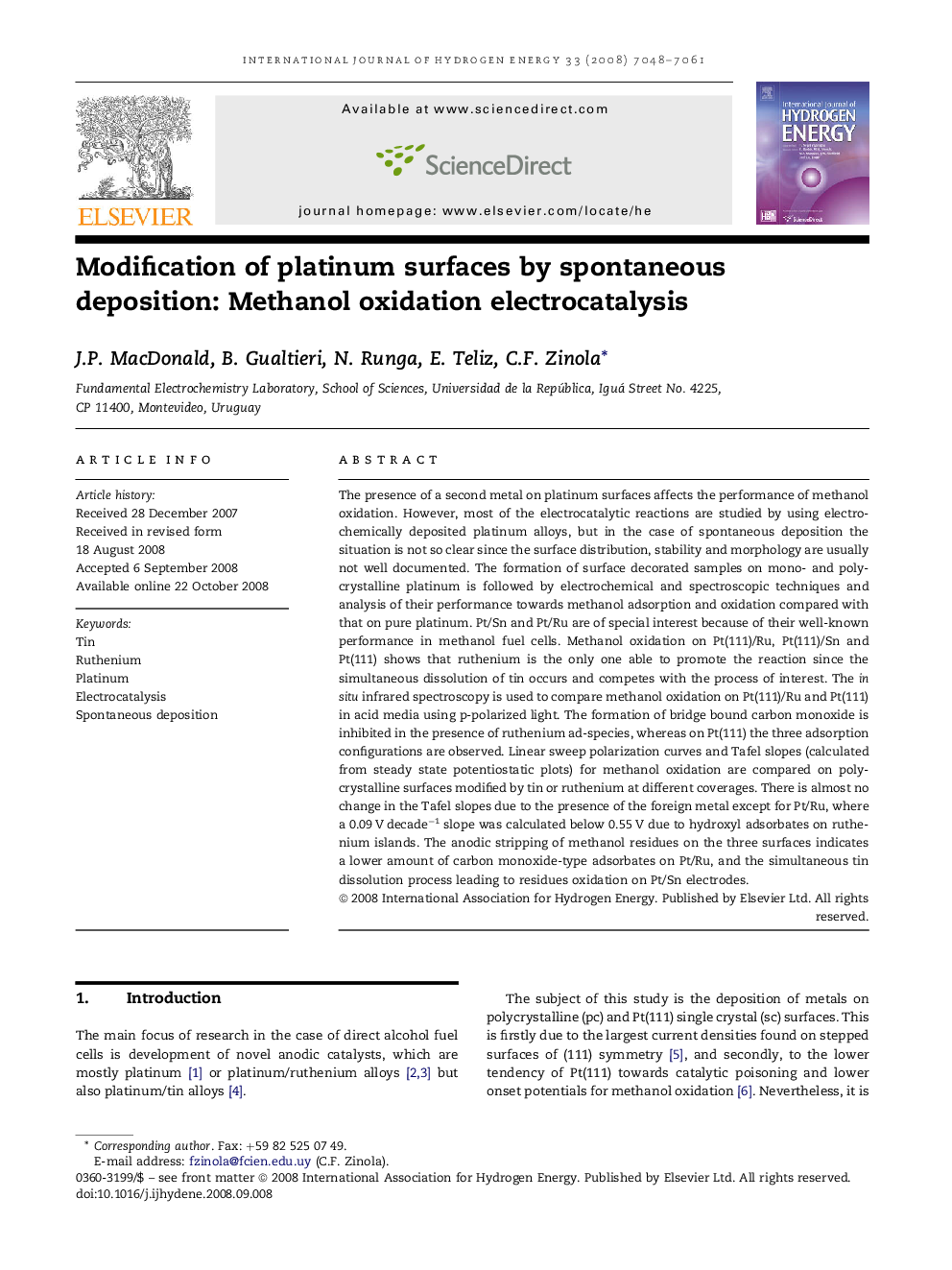| Article ID | Journal | Published Year | Pages | File Type |
|---|---|---|---|---|
| 1278247 | International Journal of Hydrogen Energy | 2008 | 14 Pages |
The presence of a second metal on platinum surfaces affects the performance of methanol oxidation. However, most of the electrocatalytic reactions are studied by using electrochemically deposited platinum alloys, but in the case of spontaneous deposition the situation is not so clear since the surface distribution, stability and morphology are usually not well documented. The formation of surface decorated samples on mono- and poly-crystalline platinum is followed by electrochemical and spectroscopic techniques and analysis of their performance towards methanol adsorption and oxidation compared with that on pure platinum. Pt/Sn and Pt/Ru are of special interest because of their well-known performance in methanol fuel cells. Methanol oxidation on Pt(111)/Ru, Pt(111)/Sn and Pt(111) shows that ruthenium is the only one able to promote the reaction since the simultaneous dissolution of tin occurs and competes with the process of interest. The in situ infrared spectroscopy is used to compare methanol oxidation on Pt(111)/Ru and Pt(111) in acid media using p-polarized light. The formation of bridge bound carbon monoxide is inhibited in the presence of ruthenium ad-species, whereas on Pt(111) the three adsorption configurations are observed. Linear sweep polarization curves and Tafel slopes (calculated from steady state potentiostatic plots) for methanol oxidation are compared on polycrystalline surfaces modified by tin or ruthenium at different coverages. There is almost no change in the Tafel slopes due to the presence of the foreign metal except for Pt/Ru, where a 0.09 V decade−1 slope was calculated below 0.55 V due to hydroxyl adsorbates on ruthenium islands. The anodic stripping of methanol residues on the three surfaces indicates a lower amount of carbon monoxide-type adsorbates on Pt/Ru, and the simultaneous tin dissolution process leading to residues oxidation on Pt/Sn electrodes.
